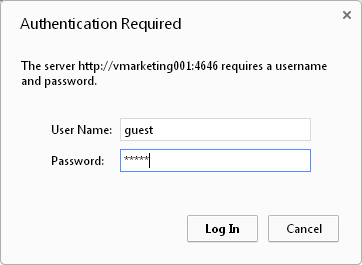FlowForce Server Jobs as HTTP Services
FlowForce Server administrators can define jobs as HTTP services to empower end users to execute the job on demand, as easily as opening a Web page.

When a FlowForce Server job runs as an HTTP service results are delivered back to the Web browser. If the last step is a StyleVision Server transformation, the job can create a rich HTML-based Web page.
Even better, the same result is simultaneously saved in the enterprise workflow.
The image below shows the last execution step of a job that queries the Groupon API (we’ve written about the Groupon API before, click here for more info). This step defines a StyleVision Server transformation that creates the file ExtremeGrouponMobile.html and saves it in the working directory.
This particular job has no time triggers, file system triggers, or remote server triggers, although any of those triggers could also be applied. Instead, the job is available on demand at the URL defined under the Service heading at the bottom of the image.

In our example, FlowForce Server is running on a workstation named vmarketing001 with 4646 configured as the port for services, so the complete URL is:
http://vmarketing001:4646/service/extremeGrouponMobile
When a user enters the URL in a browser window the first response will be a FlowForce Server login request.

Yes! The service is only available to authenticated users with privileges to access the folder where the FlowForce Server job is stored. FlowForce Server administrators create users and groups and define their access privileges. This allows administrators to define a job for the Human Resources department that cannot be executed by Sales or Purchasing. In our example, a remote user who logs in as guest is only permitted to access jobs in the public folder.
Once the user is authenticated, the job runs and results are delivered to the browser window.

FlowForce Server is available for Windows, Linux, and Mac OS platforms. To get started yourself, click here to download a free trial!

Related to this topic, Result Caching Accelerates Application Response Time describes how to deliver extremely rapid results in a Web browser window.